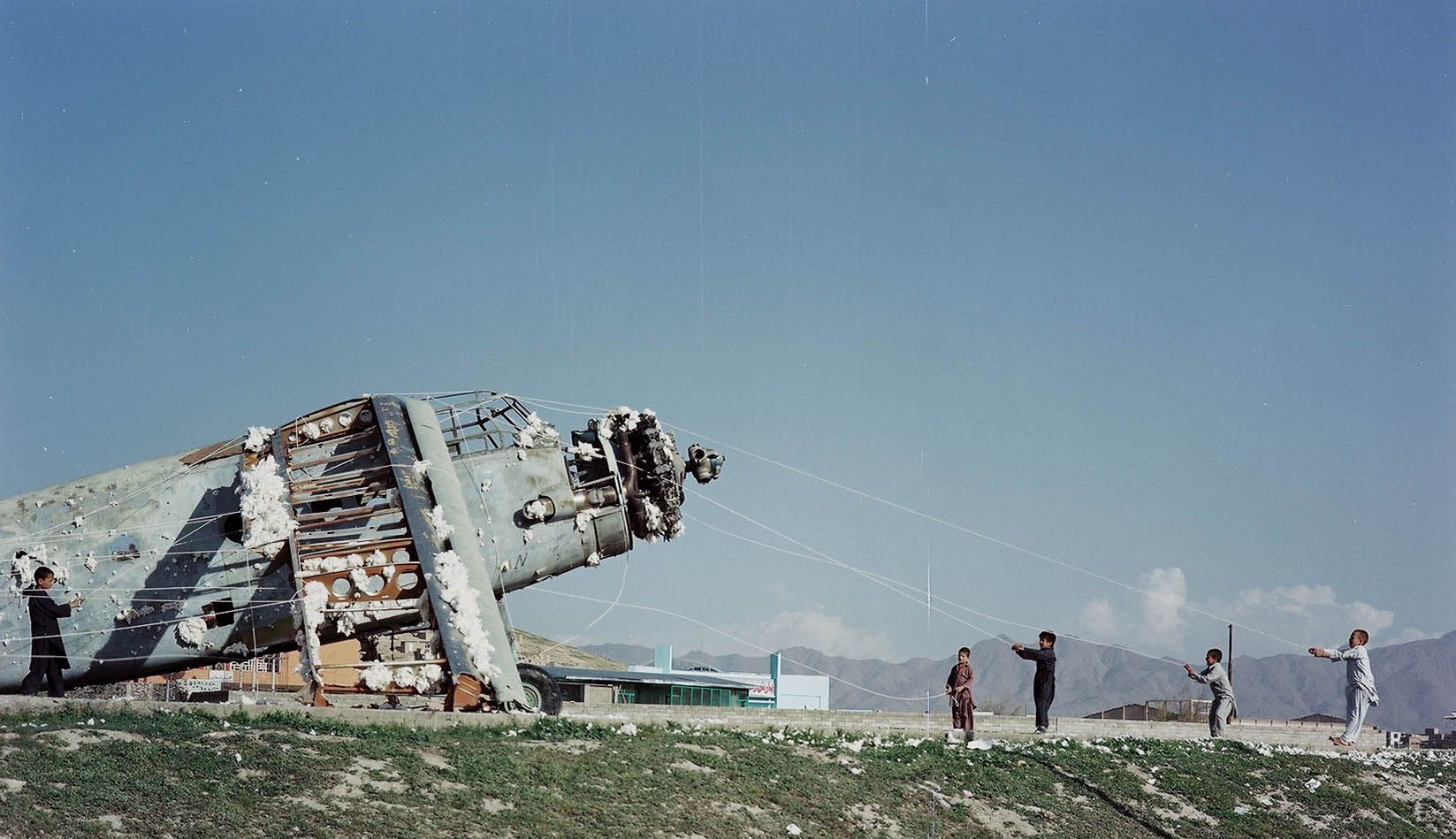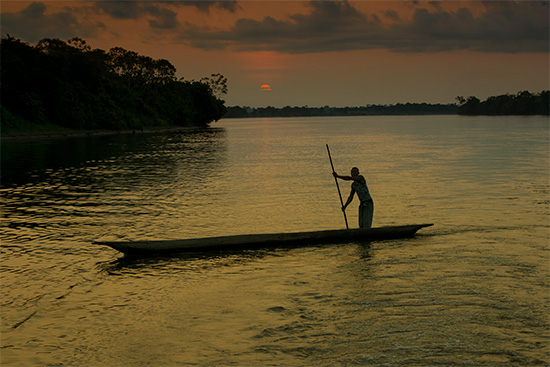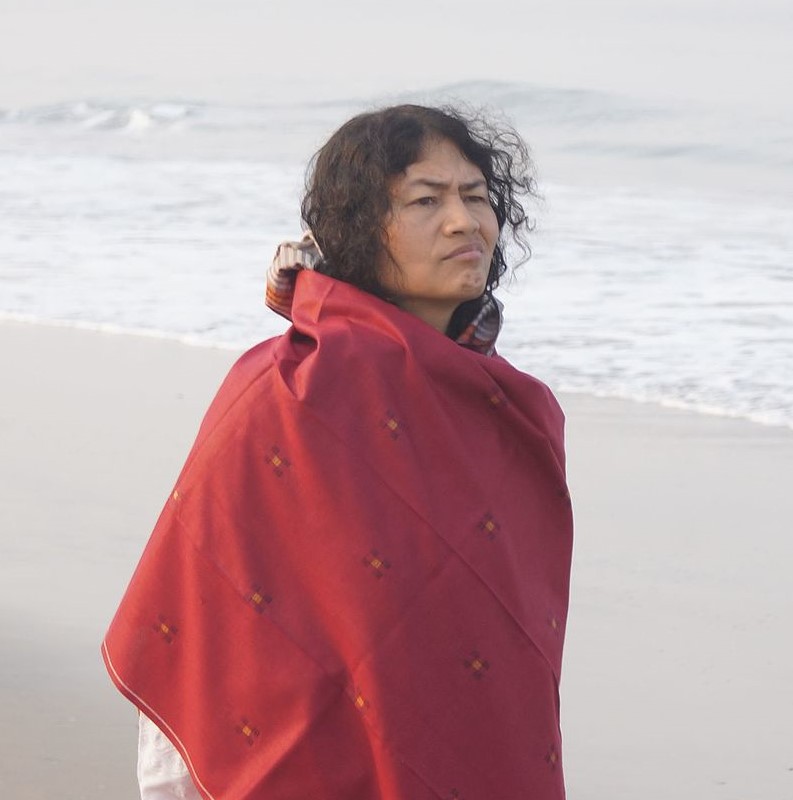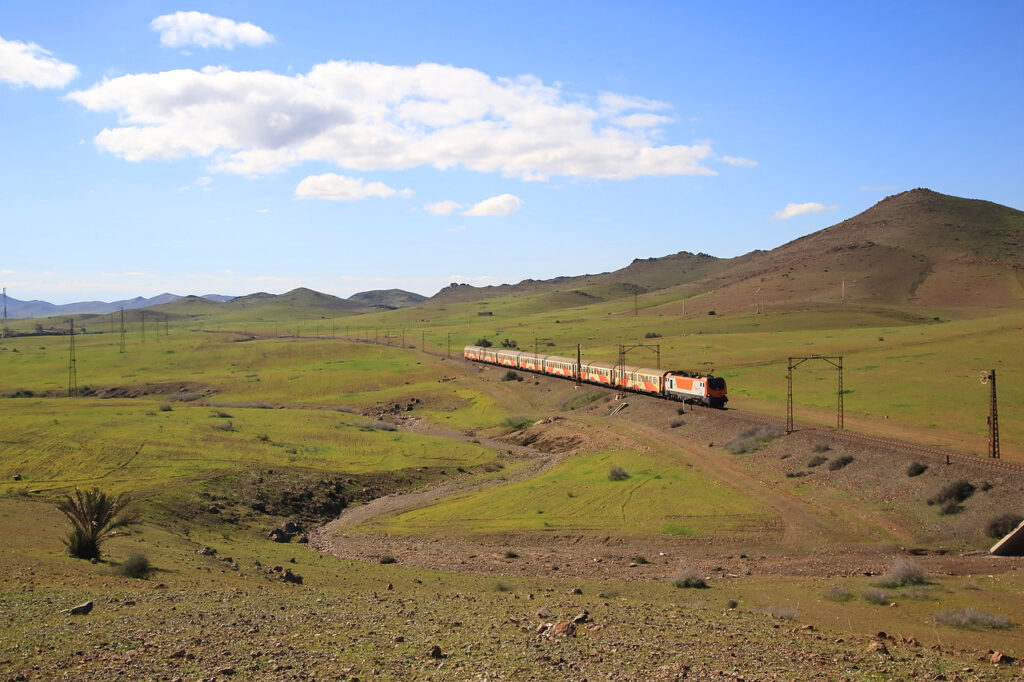While meandering home from the Canadian Maritimes some time ago, we stopped at the suggestion of family by the College of New Jersey in Trenton to view an art exhibit about the beauty and travail of Afghanistan. There we stumbled on the video of an extraordinary scene composed by Lida Abdul, who, exile that she is, calls herself an ‘artistic nomad’. A still from that video called ‘In Transit’:

Here a single frame poses haunting questions. Can the wreckage of past follies be teased to something like play? And what of those fine threads that dare to turn crushing ruin to wind-borne joy? The children seem to know.



This is precious, poignant, powerful. I’ve been wondering what you and others who have spent significant time in this country are experiencing in your emotions these days. Love this blog, whenever it appears, for the word pictures it provides, and sometimes amazing photos like this.
Hello, Melodie! Happy to find your comment here! In answer to your question – and at the risk of going over the top – I’m attaching some lines written earlier to a community of friends who asked the same question you pose.
——–
The chattering class and the pundits are having a field day now with startling images and news of the recent clamor at Hamid Karzai Airport, the Black Hawks shuttling overhead, a motorbike army of insurgent victors slung with AK-47s streaming into the cities, and the voices of women and young people pleading for help from their hiding places and some protesting in the streets. Much of the public discourse in the West is fixed on the failures of intelligence, the appalling collapse of a 20-year effort to erect a security bulwark in the Hindu Kush, the mistaken analysis of our foreign policy establishment, and the lamentable loss of treasure and life in the maelstrom. All of this is being raked over now with gleeful finger pointing and a generous measure of political schadenfreude.
So what should we make of the present hour? The present calamity should clothe us all with humility. The proper word for this is ‘repentance’. The mystique that we attach to our military prowess and trust in our powers of analysis of the global scene is misguided and dangerous. No one who reads recent history and is entrusted with forging global policy should operate under illusions about the use of brute power – ‘killing people and breaking things’ – to impose our will on the world.
And what of the future of Afghanistan? Many commentators are saying that this is the old Taliban redivivus. That is unlikely. Twenty years of war with allied forces in Afghanistan has brought to the fore in Taliban ranks the ablest, fiercest fighters who have been the point of the spear for these battlefield successes. They are ascendant now. The obverse of this coin is that the negotiators, the administrators, the problem solvers, the thinkers have largely been consigned to back benches. For the present, it means that policies will be harsh and unyielding, with the burdens falling on women and girls. And, further, that minorities – the Hazaras, the Ismailis, and the Turkic tribes – will not soon find seats at the table.
The story will eventually be told of the secret deals struck with the elders of the cities and tribes who capitulated to the Taliban advances. Those leaders may have purchased some influence as the Taliban government charts a course for the future.
In the longer run, those young women who sat earnestly at their desks in these last years, who breathed for a while the air of freedom and opportunity, may find their footing, their voice and bend the future in their favor.
jpl
Thanks, much to ponder here and understand. Bless you.